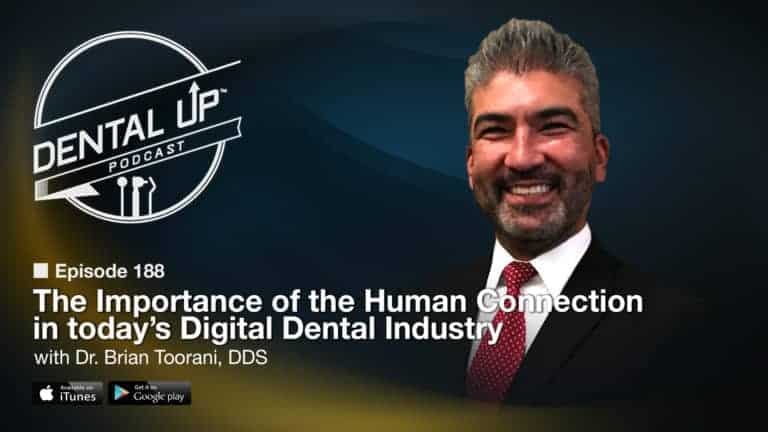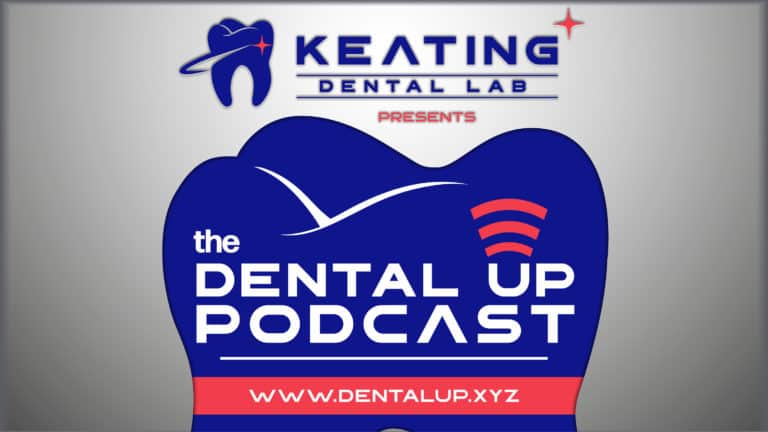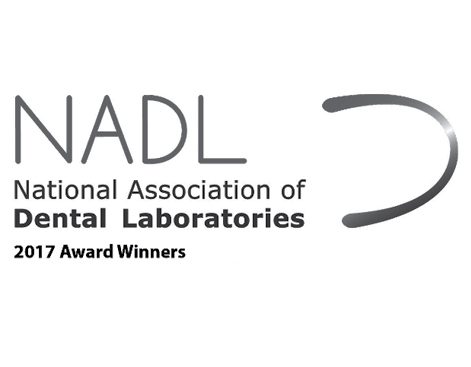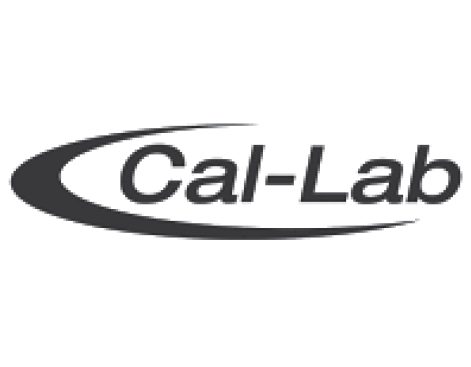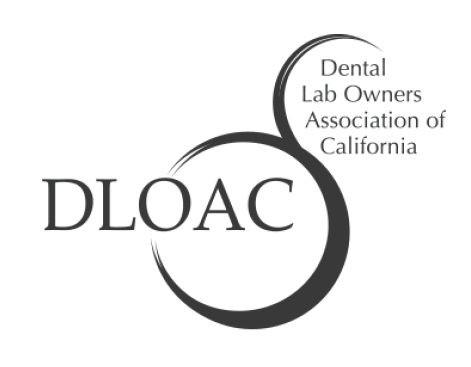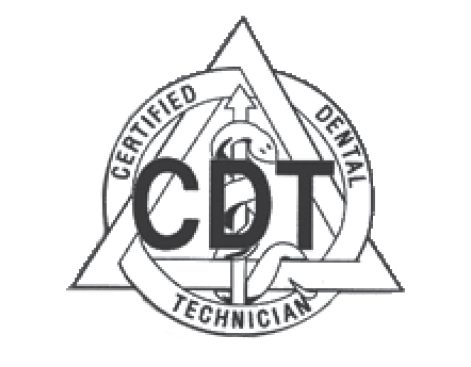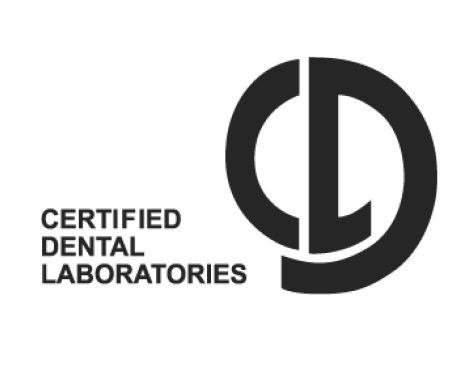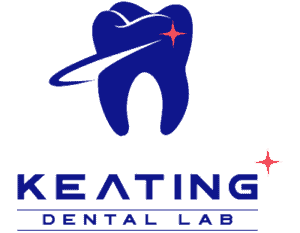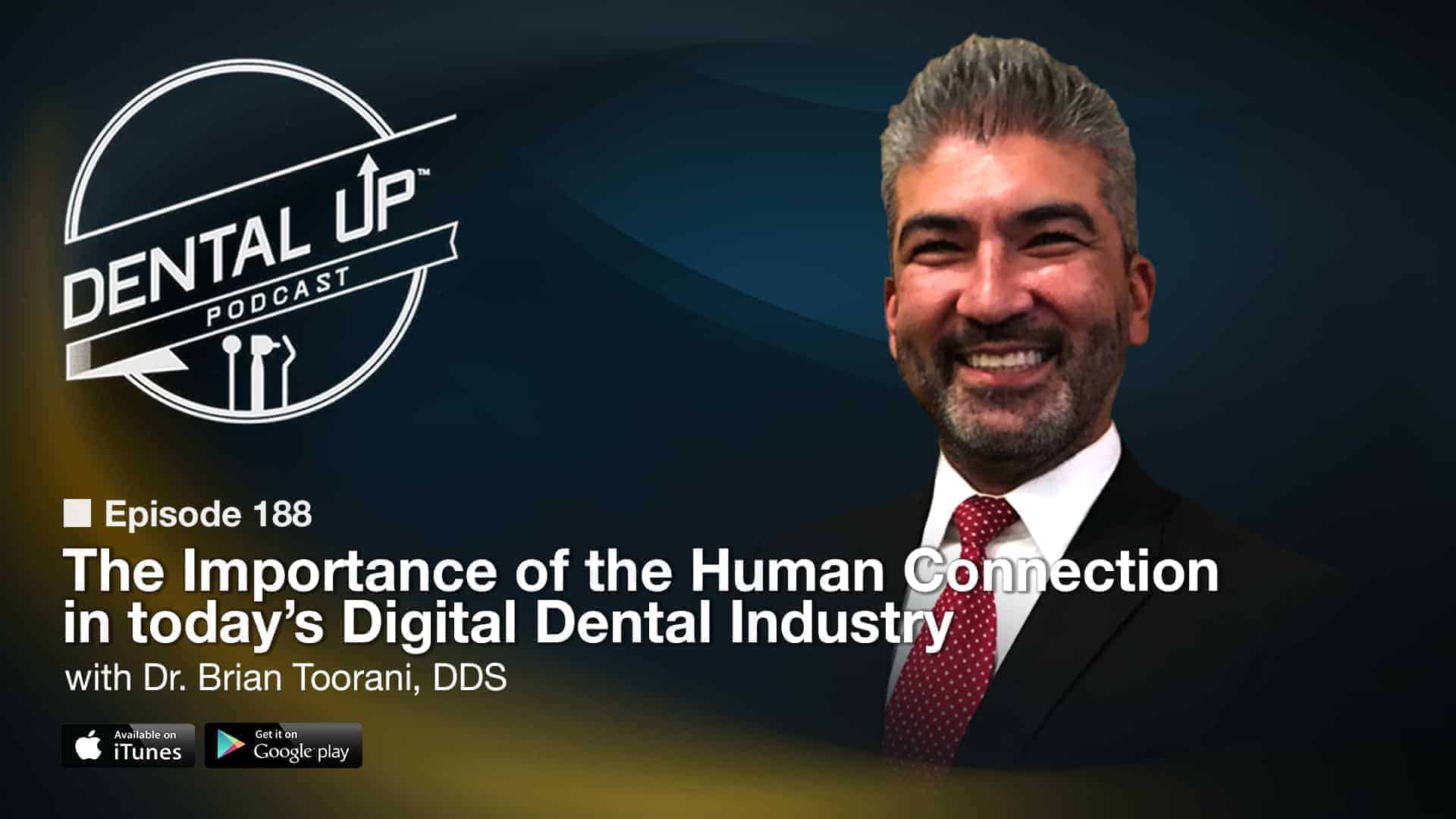
![]()
![]()
![]()
![]()
![]()
Our guest this week Dr. Brian Toorani, DDS sits down with our host Brandon Fetters and shares some tips on how he worked on his depression and anxiety by creating daily tasks that helped him mentally, spiritually and physically. He shares how you can create a positive workplace culture for both your patients and faculty. Finally, he explains how he reduced overhead which helped him save his practice during the 2008 market downfall. You will hear all this and more on this week’s episode of The Dental Up Podcast.
On this Episode you will hear about:
-Dr. Toorani explains what encouraged him to become a dentist.
-Explains why perspective is important and knowing when its time to switch things up.
-Dr. Toorani explains why he loves CEREC and it’s community.
-He share some tips on how to establish and connect with your patients.
-Know where you are and where you want to go.
-Be financially intelligent, learn how to save and spend.
-Dr. Toorani’s experience with depression and anxiety.
For more informaiton on Dr. Toorani and his practice, feel free to check out the links down below:
Facebook: http://bit.ly/2OUo72u
Practice Website: http://dentaloasisofoc.com
[bg_collapse view=”link” expand_text=”View Full Transcript” collapse_text=”Hide Transcript” ] Host: Ladies and gentlemen. Host: This is the Dental Up podcast brought to you by Keating Dental Lab, a full-service, award-winning dental laboratory. Each week you’ll learn tips and techniques from real-world dentists, bringing you in depth interviews, motivating stories, current events and sports. Here is your special host, the senior technical advisor for Keating Dental Lab, Brandon Fetters. Brandon Fetters: Hey, everybody. Brandon here. Welcome to another episode of the Dental Up podcast. Our guest this week graduated from the University of the Pacific School of Dentistry. He is a mentor at the Scottsdale Center for Cosmetic Dentistry, a certified advanced Invisalign provider and a CEREC specialist. Brandon Fetters: He is a member of the Orange County Dental Society, the ADA, the CDA, and an active member of the American Academy of Cosmetic Dentistry and the Academy of Osteo-integration for Implant Dentistry. Currently practicing from Huntington Beach, California, please welcome Dr. Brian Toorani, DDS. How’s it going Dr. Toorani? Dr. Toorani: I’m doing great. Thanks. Thanks for having me. Brandon Fetters: Yeah, it’s wonderful to have you on the show. Appreciate you taking time out of your schedule to meet up with us. Thank you. Dr. Toorani: Well, my pleasure. Love doing this stuff and love giving back to dentistry in any way possible. Brandon Fetters: All right. Yeah. Now, going along those lines, what was it initially that brought you into the dental field? Dr. Toorani: Oh, my gosh. Ah, going back to my childhood, since I was a kid, my parents always used to tell me that I was so picky with things and I would take forever, but everything would just turn out always perfect and they’d always tease me that I’d make a great dentist because I was such a perfectionist. Dr. Toorani: And, I took, actually a test in college. I wasn’t sure, I was your typical premed student, and I wasn’t sure if I was going to go into medicine because I’m not a book person and I’m more hands-on. Ever since I was a kid, I also could fix things, do things as long as I saw it, but I wasn’t the kind of guy who would read the steps, one-by-one. But, if I watched a video or saw pictures, I could figure out how to fix things. Dr. Toorani: So, I was more visual always, but I took a test in college and dentistry was my number one result as the best career match for me. That was my sophomore year in college and, after that, I started going to pre-dental meetings, and I volunteered at a dental office, and I saw how dentistry was so beautiful and could change lives and I just fell in love with it, and then, from there on it became my full focus, and that’s how my journey with dentistry began. Brandon Fetters: That’s awesome. Yeah. Being mechanically inclined definitely helps out in the dental world, that’s for sure. Now, you mentioned going to school. Where did you actually end up attending school? Dr. Toorani: I went to University of Pacific School of Dentistry in San Francisco for my dental school, and undergrad, I went to UC Irvine in Southern California. Brandon Fetters: Excellent. Yeah, those are both great places, for sure. And, I know I’ve been to UC Irvine quite a bit. That’s a really fun campus. Now, when you were coming into the dental field initially, did you just, right out the gate, start your own practice or did you come in as an associate at a different office? Dr. Toorani: When I got out, so kind of an interesting story. I passed my state boards. I got my results, I think it was July 1st and I was working July 2nd, and the easiest job to get was actually hiking coverage, and I was just hopping from office to office, and I thought it was the coolest thing. I was only making 250 a day or something. I don’t know what it was, but a small amount. Dr. Toorani: But, the way I saw it, I hadn’t had any income in years and this was the coolest way to get some income and get experience. And, I got to see all kinds of dentistry right off the bat. Some, I really appreciated and enjoyed, and others that I just cringed that. And, I realized that there’s different styles of dentistry out there and that everybody does things a little differently, but ultimately, I realized that my standard care is going to be much better, or much higher, than a lot of the officers I was visiting at the time. Dr. Toorani: So, after that I just covered for a couple of offices when the dentists were hurt, and I just really enjoyed doing that. I eventually became an associate in my current office, was an associate for a year. About halfway through my first year, the original owner of the practice asked if I was interested in buying in. I said, “Sure, but this is your house.” I didn’t want to intrude. And he said, “No, not at all. And, we’d love to have you come in.” Dr. Toorani: And, about a year after being an associate, I became a 50% partner, and that was 2001, and the agreement was that 2006, after five years of partnership, I would buy out my partner. And, that’s what we did and that’s how I got started in the practice and my career, ultimately. Brandon Fetters: That’s awesome. And now, after you took over, did you take a different approach to try and help grow the business? Dr. Toorani: Yes. So, my partner was very well-respected and known. He did great dentistry. He was more of a traditional dentist. I was more of a conservative dentist, a little different style, more about bonding and the newer material and techniques. But also, same with a team, the employees had a different perspective. They were all used to how the practice was run. Dr. Toorani: So, I had some challenges in trying to reconfigure my staff at the time and get them to follow the new vision, new purpose, of the practice. So, it was quite a bit of a challenge. I didn’t really grow the practice past partnership. We did grow quite a bit, but we also gained a lot of overhead in the process. And, that became financially very difficult because the previous landlord didn’t renew our lease, essentially gave us 12 months and we had to find a new office. Dr. Toorani: That was in 2007, so we have to build a brand new office. So, I had to take on another $1.2 million in debt, in addition to buying out my partner to build our facility, otherwise I’d have no home to practice in. So, that was 2008. We moved into our office and, of course, the economy tanked in 2008, 2009, and some of the hardest days I’ve ever experienced in my life were during that depression of 2008, 2009. Dr. Toorani: And, we managed to survive it and we actually downsized quite a bit to ride out the tougher days. We actually reduced our overhead significantly to survive that period, but that’s ultimately how we got into our current facility. And, since then, we’ve just been humming along, and ultimately, not a whole lot of growth, actually. If anything, we downsized the practice, but we improved the bottom line by reducing overhead. Brandon Fetters: That’s great. Yeah. Can you tell us a little bit more about how you reduced the overhead? Dr. Toorani: Yes. The first one was very difficult. I’d say, that I will never forget this one day. It’s the day I had to, basically, pass out about 10 resignation letter, or not resignation letters, but pink slips. I had to, essentially, let my team know that we’ve restructured the practice and that their position has been eliminated. That’s the only line I could give. Dr. Toorani: I had a coach at the time and pretty much he informed me that the only way to survive this, my practice, and my overhead, and expenses was to reduce overhead, and I had to let go of about 10 people, and it was the hardest day. I probably slept around 10 hours over three days and it was very, very difficult. Dr. Toorani: But, one of the first things I did was I had to right-size my practice to where I needed it to be at. And then, refocus my efforts towards improving the numbers. But, that was the first step, was just, essentially, trimming the fat and getting rid of a lot of the overhead, and the easiest way, and the only way I was directed at the time to do, was through downsizing the practice with the number of employees, we had Brandon Fetters: Yeah. Yeah, certainly. Now, during this time, did you find any marketing strategies, mailers or social media that really helped you to promote your practice and get everything rolling again? Dr. Toorani: Well, it’s interesting that you say that. I’ve tried all kinds of marketing tactics over the years. At that time we are actually doing newsletters, and we were doing flyers, and we were spending around four to 5,000 a month doing that. And, to be really honest, the flyers and the cards for our area was not working very well. And, after six months or so of doing it, we just stopped doing direct mailers and marketing, and we mainly focus on direct word of mouth marketing and asking for referrals. Brandon Fetters: It goes along those lines, or it makes me think about it, about the whole lowering your overhead when you’re paying for all that printing and mailing, that’s one of those processes. Dr. Toorani: Yes. Brandon Fetters: Now, in practicing dentistry, was there any part of it that was your favorite? Dr. Toorani: Yeah, I could do a lot of the typical restorative dentistry, but one of the areas that I really invested in, starting 2002, was the surgical side. So, I started placing implants in 2002. I graduated in ’99, so about two, three years out I started placing implants. And, not as many of my colleagues are doing it. At the time it was mostly specialists and I saw this as a great opportunity. So, I kept growing with implants. I learned more and more advanced techniques and I really enjoyed that. Dr. Toorani: And, I think implants and surgical dentistry was a huge part of my success. And, especially during the downturn of the economy, I realized that I was more valuable because I could do more procedures. So, dentists who just do crowns and fillings, it’s tougher to survive when the economy goes down, or we have a recession. Dr. Toorani: So, my big advice, learn to do as much as you can, so long as you love it and you can do it passionately. Take courses on managing bigger cases, take courses on learning implants and surgical cases and doing more and more than what we call the typical general dentist. So, those are the things that really helped me through that period was that, again, my more versatile baseline of knowledge. Brandon Fetters: Yeah. Now, along those lines of attending courses, do often go to the dental conventions or gatherings? Dr. Toorani: I do, you see, well, I usually help out at the conventions based on who needs my help, but I’m usually there checking out what the latest is and what’s changed in dentistry. And, it’s also always nice to see colleagues and friends at these events. And, I think we owe it to our industry to be part of that and support it fully. Brandon Fetters: Excellent. Yeah. Now, I know that you’re a pretty good fan of the CEREC machine. Is that correct? Dr. Toorani: Yes. I’ve had it since… I think it’s September 24th, 2010 is when I got my first one. Brandon Fetters: Got you. Yeah. You’re still part of that community, is that right? Dr. Toorani: I am. I’m not as involved as I used to be now that I’m not practicing any more. But, yes, I still love helping out and teaching and learning as well, just to make sure that it’s in my head still as to what the best and latest methods are. Brandon Fetters: Excellent. Yeah. Would you be able to expand on that for us and what your thoughts are about the digital scanners and CAD/CAM technologies? Dr. Toorani: Yeah, so, I mean, I’ve had my, since 2010. It really changed my practice. A couple of articles are written on how it had a huge effect on my practice, reduced our overhead, made it more fun, more enjoyable. I mean, as dentists, if you really think about it, we do the same thing day in and day out. We go in, we numb, we drill, we put gooey stuff in the mouth and we leave and, hopefully, assistant makes a good tamp and we just check. Dr. Toorani: Then, we have to have the patient come back so we can poke at them again and try to deliver that crown that was made later. This CEREC process, at least in-office milling, offered the opportunity to finish the patients in one visit, and as much as we think our patients love us, I don’t think anybody wants to see us twice when it can be done in one visit. Brandon Fetters: Yeah. Dr. Toorani: So, that’s had a huge impact in our practice and I’ve loved it. With that said, I am sending more cases out now digitally. So, to ultimately answer your question. I feel that if a dentist currently is not using CAD/CAM and digital technology, they are way behind. I mean, it’s as if they’re still making their phone calls with a rotary phone. It’s a must now. Dr. Toorani: So, you don’t need to have a CEREC, necessarily. But, digital scanning is the standard. I think it will become standard of care real soon. I have to be careful in saying that, but I feel that it’s gotten to a point where it’s almost a necessary item for every dental practice because patients are expecting that now. Same visit dentistry is cool, but not everybody’s up for that, depending on your practice type, practice style, practice size, practice flow. But, I think that CAD/CAM and digital dentistry is definitely a must and a great way to go. Brandon Fetters: Excellent. Yeah. Going along these technologies and advancements, do you have any piece of equipment that you’ve recently added to your practice? Dr. Toorani: Yes, we just upgraded, well, I had a CEREC Bluecam, and and CEREC Omnicam, previously. We just upgraded our Bluecam, which is extremely outdated now with the Primescan. So now, we have the Primescan, the latest CEREC scanning unit, and we also have the Omnicom and it’s just nice to have the latest technology in the practice, and, in a way, a lot of our patients expect that. Dr. Toorani: They know that we are always on the cutting edge and it’s pretty much standard protocol in our office to have the latest technology. But, that’s the latest thing we’ve added in this office. Last year we added the Biolase Waterlase iPlus. That’s been phenomenal. If I may, I just want to share, anybody out there struggling with trying to take a bonded Emax off or zirconia off, the Biolase. iPlus can do it in under one minute. Dr. Toorani: I have videos of it, I’ve done it. It’s actually the main reason I got it. It has a lot of other uses, but I just got it to pop off Emax because I got tired of I, it felt like, grinding granite off with a Dremel tool and it took about 30 minutes, and now I can do it in less than a minute with no stress on my wrist. Brandon Fetters: Wow, that’s awesome. Dr. Toorani: So, that was one of my favorite equipment that I’ve added ever in my practice. And, of course, the CEREC on the digital side for scanning, is huge as well. Brandon Fetters: Excellent. Yeah. Now along these technologies where we’ve become so digital, the art of one-on-one conversation seems to have been lost for the most part. Is there any tips you can give on how to communicate with your patients? Dr. Toorani: Yes, you’re absolutely right. You know, it’s funny, one of the things we just signed up for Dental Intel, I’m not sure if you guys are familiar with that, but basically, it’s a company that takes data out of your practice management software and makes it easy to understand what you need to do, where you need to work on, how your practice is doing. Dr. Toorani: Basically, it foolproofs or simplifies your metrics for your practice. And, one of the things I started doing was, I started calling my patients that I hadn’t seen myself. And, when you call patients yourself, they hear your voice. It’s got such an amazing effect. Patients take it more seriously. They really appreciate it. So, that’s one of the things. My advice would be, as awesome as digital is, nothing can replace your passion and your love for your patients. So, make sure you share that with them. Let them know that you love them, you care for them, and you want nothing but the best for them. Dr. Toorani: And, sometimes that just means you got to get on the call yourself, or just send a handwritten card coming directly from you, the dentist. And, it has such an amazing effect on patients. So, in a way, sometimes it’s nice to be old school and pick up that call instead of sending a text. Dr. Toorani: Just, as I mentioned to you, before this podcast, I was in a quick meeting and I was tempted to send an email, but I said, “You know what, let me just talk to my employee and find out what’s going on.” And, when I just sat down and talked to her, I got a lot more information There’s something about when you see someone, you hear their voice, you see their face when you’re talking to them, that no texts, or no email, or no FaceTime can ever replicate. So, don’t lose sight of that. Yeah. Stay in touch with the humanistic side and let your patients know you love them. Brandon Fetters: Yeah. That’s excellent. Are there any other tips that you could give about establishing the positive strong culture in your practice? Dr. Toorani: Yes. The hardest thing for me, Brandon, has been to become a better listener. And, I’m not saying just hearing thing, a true listener, and a listener isn’t just listening with your ears. You’re listening with your eyes, you’re listening with what you hear, but also with what you see, and truly listening to your patients, truly listening to your team members, and being there fully is so magical and so powerful. Dr. Toorani: And, as soon as they know you care for them, you want nothing but the best for them, they will go out of their way every time for you, including patients, too. So, my biggest pearl, number two, would be on this, to become the best listener you possibly can be, because by listening you show that you care, and that is something that has to be real. It has to be sincere, and it’ll help you with every relationship in the world, whether it’s at home with your wife, or partner, or husband, or with employees, and with patients. Listen to them. And, I mean, really listen to them, and that’s a pearl right there. Brandon Fetters: Excellent. Yeah. Most certainly have to agree with every word of that. Now, going along those lines of me picking on you here for some more advice, is there any tips that you’d be giving dentists coming into the field for the first time? Dr. Toorani: Oh, gosh, yes. Lots of pearls for new dentists coming in. Number one thing is, I actually jotted a couple of things and one of the things I wrote down was, know where you are,, but more importantly, know where you want to go. See most of us get all stuck in the commotions and the flow, “Oh, my friend’s doing this. He’s an associate. So, I should be doing this.”, or, “Oh, hey, this office is doing it this way. I should be doing it that way.” Dr. Toorani: Don’t worry about others. What do you want to do? What do you want to achieve? How do you want to work? What’s important to you? So, that’s your goals, where you want to go. That’s your destination, right? So, you have to know where you want to go. And then, you have to have a real talk with yourself on where you are. And, from where you are to where you want to go, the rest is easy. Dr. Toorani: We get so hung up on these little courses, and tricks, and systems, and this and that. But, more importantly, we’re not clear on our own destination. And, even if we are, we’re not realistic with where we are now. So, my advice to the new dentist would be, know where you want to go. Know how you want to do things. Know what you love doing, and know where you are, and then, figure out the space in between. That’s your journey. Dr. Toorani: The journey is the fun, easy part, but a lot of us don’t actually make a solid plan on where we want to be, and by when. We get so hung up on the how, but we need to have an actual vision and a plan of the final destination on what that means to you. Dr. Toorani: And, that’s my big pearl to new grads is, just figure out what it is that you want to do with your life, what it is that you want to do with your career, your degree, your business, your clinical, even, which procedures you enjoy doing, and master them. Be the best at it, and expand your horizon. Learn more new things. But, that’s one. Dr. Toorani: And then, my only other pearl. Don’t do what I did, which is go crazy and start buying things left and right. Live within your means. Save money and pay off your debt. Pay off your debt and, by the way, pay off your debt. Last year, finally paid off student loans. Actually, it wasn’t last year. Sorry. It was two years ago, December, and it was the best feeling on earth that I finally had a zero student debt balance. Dr. Toorani: And, I’ve been at since, gosh, forever. I had been paying towards that forever and it felt so great to pay it off, and now I’m onto paying off other debt myself. But, that’s been the biggest advice I’ve gotten and it’s made all the difference. But, don’t get into debt, especially what I call avoidable debt or unnecessary debt, and just live within your means, and run it lean and mean, and become the best you can be in every task and every procedure that you enjoy doing. Brandon Fetters: Excellent. Yeah. Thank you. That’s wonderful. Now one of those things, switching gears a little bit here, one of the things in dentistry that often isn’t quite talked about so much is depression and anxiety in this field. Have you had any experience in this? Any tips or thoughts that you’d be willing to share with us? Dr. Toorani: Yes, absolutely. I did a podcast on this, actually. I think depression and anxiety is an area in dentistry that often many dentists don’t talk about. And, I’ve gotten so many emails after my last podcast on this that I did about a year, a year and a half ago, from various dentists around the country just thanking me for sharing my perspective. Dr. Toorani: And, one thing I want every dentist out there to know, if you’re dealing with depression, or if you’re dealing with anxiety, just know that you’re not alone. We feel often that we’re alone, but we’re not alone. You’re not alone. There’s lots of people who love you and care for you. You just have to find the right group, or people, to be able to understand what you’re going through and help you. Dr. Toorani: But, if you think about what we do in dentistry every day, we have to be perfectionists all day long. We can’t be behind schedule. We can’t be late. And, I mean, things have to be within microns to be acceptable to the world. So, it’s a lot of stress and after a full day of operating at that level, you go home and you’re pretty wiped out, and it takes a toll on you. Dr. Toorani: So, dentistry is known to have, in the past, the highest suicide rate. And, I think in many ways it’s true because it’s hard to do what we do. I think dentistry is perhaps the most underrated, difficult career a person could have. In a good way, in the sense that we earn every dollar of what we make. And, I don’t think a lot of people understand, the non-dental people out there, understand what it’s like to be a dentist, to work under the pressure that we work in every single day. Dr. Toorani: And so, I just want everyone out there to know that you’re not alone. Depression in dentistry is not uncommon and it’s just that a lot of people aren’t willing to talk about it or share it openly. One of the biggest things I’ve dealt with is depression in the past, and more than that, anxiety attacks. And, I didn’t understand how debilitating anxiety could be until I start experiencing them on a regular basis. Dr. Toorani: And, what I realized was that there are certain things that trigger anxiety attacks. And, once I realized that these are the things that trigger it, the emotional intelligence side of it, and how to handle it properly, it came through time. And now, when I recognize that something is going to trigger a certain response, I try to intercept it in advance. I try to be one step ahead. Dr. Toorani: And, the biggest advice I have in handling depression and handling anxiety is, talk to a professional, whether it’s a life coach or a therapist, or a group of friends that you can count on, somebody who actually will understand, just really listen to you, and will be there for you. Dr. Toorani: But, that’s what it takes. A lot of times we just need to get it out of us and we don’t need a solution, necessarily. We just want to get it out of us. And, to be honest, anxiety and depression, it’s your body’s way of saying you need attention in one area of your life, or one area of your body or your mind. Dr. Toorani: But, one of the things I’ve realized that has had the biggest effect on me personally, and how positive I stay, and how well I battle these challenges in life that trigger anxiety or depression, is being active. I go to the gym every day or every other day, I do the three, four important things that are most important. Every day, I try to do something right for my mind, whether it’s listening to a podcast, or meditating. Something positive, not the news, but just something really positive that will fuel my mind, and also my soul. Dr. Toorani: I also try my best every day to improve my relationship with those in my life. Whether they’re my team members, family members, relatives, friends. I try to continue to work on that. And, when I make mistakes, and I make mistakes with relationships, I own up to it, and I’ll reach out and say, “My bad, my apologies.” And, just I need to know that I’ve done what’s best for my relationships out there. Dr. Toorani: And, the other thing is I try to eat better. It’s very important. What you put into your body is how your body will perform. Imagine your car. If you put crappy fuel in your car and it’s got water in it, and maybe very bad fuel, do you think you’re going to be able to rev that to the red line every day? That’s what we do to our bodies and minds. We push it to the limit. Dr. Toorani: But, if we don’t feed it properly, whether it’s food, or energy, or positivity, this car is just going to start blowing smoke and die in that red line. And, that car is you, your body. So, we have to be aware of what we feed ourselves. I’m not going to go into the talks of, there’s many different varieties of diets and food, but just eat things that are good for you. And, feed yourself mentally and emotionally things that will be good for you, as well. Dr. Toorani: And, get rid of things that cause you grief. Whether it’s a patient or a family member, if there’s that one individual that does nothing but suck life out of you, just get rid of them. Just doing that alone will make your life better. So, those are the things that have helped me, ultimately, handle depression and anxiety better is those three, four things. To take better care of my mind, take better care of my soul, take better care of my relationship, and take better care of my body. Dr. Toorani: And, additionally, every day I try to do something financially positive to improve my profit, whether it’s reducing an expense, or working out a phone bill, or trying to save a buck or two here and there, but every day I try to take some action towards financial improvement. Dr. Toorani: And, that’s been also a huge part of handling the anxiety and the challenges of what I do because, with my disability now, financially, it’s been a huge challenge since June and managing that, oh, my gosh, I thought I had something rough days in the past. These past six months have been probably more challenging than the previous 16 or 20 years of my career. Dr. Toorani: But, it’s being aware that it’s coming and knowing what works best for you and handling that, again, such as working out, or box-breathing, those all really tend to help me, and music also helps me. I tend to have about three, four favorite songs that pump me up. I listen to that before. Dr. Toorani: I actually listened to my favorite song before I got on this podcast. I needed to have some energy and some positivity to bring to the audience. This is kind of what I do. I try to get myself pumped up. I don’t want to be a energy sucker when I come in to any meeting or any gathering. I’ve been there. I was there up until recently and I don’t ever want to be that person again. Brandon Fetters: Yeah, yeah, no doubt. Well, Dr. Toorani, I really appreciate it. You’ve shared some wonderful tips and insights with us. Thank you so very much. Are there any closing thoughts that you’d like to share? Dr. Toorani: Yes. So, just more than anything, love what you do. Because if you don’t love what you do, somebody else will. And, if you’re going to take care of people, whether you’re a dentist, or a team member, do it with love and passion. If you’re going to talk to your employees, do it with love and passion. Even in the tough days, even if you have to let go of somebody, let them know that this is not personal, that you love them. You want nothing but the best for them. Dr. Toorani: But, ultimately, every day do whatever it is that you do, do it with passion and love. Whether you’re prepping a tooth, or placing an implant, or setting up an operatory or, or writing a report, or I don’t know, sweeping the floor, or doing the dishes. Do it with passion. It’s going to have to get done anyways. But, life is so much more beautiful when we do things with passion and positivity. Dr. Toorani: And, that’s the one thing I’ve learned. It doesn’t matter what I’m doing. I try to always do it with passion, and I try to share and be that disease, that positive disease. I try to spread that energy and passion with others around me, and that’s my big thought is, if you don’t love dentistry, don’t do it. Find another means. Dr. Toorani: But, for me, now that I’m involved in the business side of things and this is my disability with my wrist, I’m absolutely loving the business side of dentistry. It’s something that I haven’t really hardly touched at all. I have never taken a business course up until September of 2019. First full non-clinical, all business course. And, I have another one coming in February. Dr. Toorani: But, that’s kind of what I do is, now my passion isn’t on the clinical side, not because I don’t want to, I love and I really miss the clinical side. I just can’t physically practice dentistry anymore. So, I’ve decided to infuse the business side with the passion that I have for dentistry, and that’s what been my focus in my practice right now. So, live with passion, do dentistry with passion, talk to people with passion and, trust me, great things will come. Brandon Fetters: That’s so wonderful, Dr. Toorani. Thank you so very much for everything you shared, been very inspirational. Really appreciate you taking time out of your day to meet with us on the podcast. Thank you so much. Dr. Toorani: My pleasure. And, anybody out there who needs to talk, or wants to just reach out to me. If there’s anything I can do for you and you’re in dentistry, know that I’ve got you and I’ll do anything I can to help you. And, I mean this, because I’m so passionate about dentistry. I would love to help any way that I can. If it’s okay, I’m going to share my email. Is that okay, Brandon? Brandon Fetters: Oh yeah, of course. Dr. Toorani: Okay, so you guys can email me directly. It’s probably the best way to get ahold of me. It’s [email protected]. That’s D-R-T-O-O-R-A-N-I at dental oasis of OC dot com, and it would be my pleasure to help in any way, or any shape, that I can and just know that I’ve got your back. Brandon Fetters: Most excellent. Thank you, again. Dr. Toorani: My pleasure. Host: Thanks for joining us on the Dental Up podcast show this week. Make sure to follow us on Facebook, Instagram, and Twitter or search the Dental Up podcast on iTunes for our weekly feed. Don’t forget to visit keatingdentallab.com/promo for exclusive offers. Host: Keating Dental Lab is a full service dental laboratory and we’re nationwide. We’d love for you to send us a case so we can show you the Keating difference. If you dig what you heard, please leave a review on iTunes and we’ll be back next week. [/bg_collapse]

